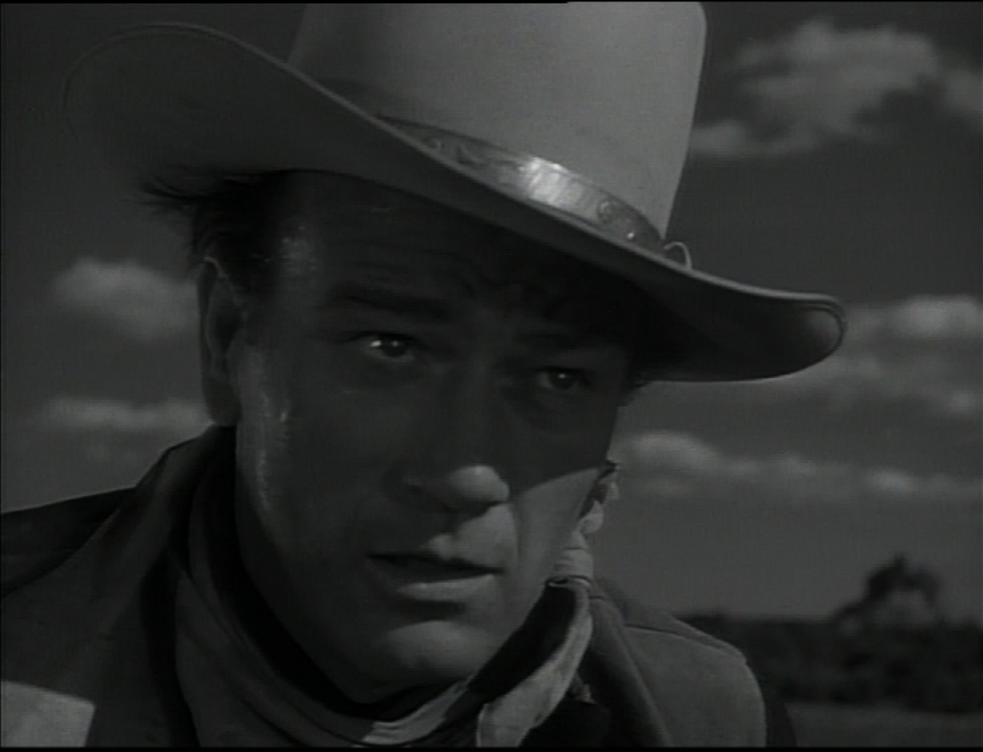Movie Review: Angel and the Badman (1947) directed by James Edward Grant
Quirt Evans (John Wayne) may be a top hand with a gun, but he’s got his limits, and this time he was severely outnumbered, so rode away. Badly wounded, he collapses in front of Quaker woman Penelope Worth (Gail Russell) and her father Thomas (John Halloran). They get him to the telegraph office where Quirt makes a land claim, then collapses again.

The kindly Quaker family nurses Quirt back to health, despite warnings from Dr. Mangram (Tom Powers) that this could lead to trouble for them. (His opinion doesn’t stop the doctor from doing his job properly.) As Quirt recovers, he and Penelope take a shine to each other. Quirt is bemused by Quaker beliefs and customs, but comes to see the value in them.
Too bad the rest of the world is still wicked! This is especially true in the case of Quirt’s old “work colleague” and enemy Laredo Stevens (Bruce Cabot). Can Quirt stay alive without killing?
This was the debut of John Wayne’s production company, and the director also wrote the script. It was also a rare movie where Mr. Wayne’s character is a criminal rather than a lawman or other law-abiding sort. We do learn that Quirt’s been a lawman for a short time before…bad things happened. He’s had a difficult life. But for a crook, he’s a relatively decent sort, and can still be reached with kindness and reason. He grows from someone who literally cannot sleep without a gun in his hand to someone who can leave his gun in the dust at the end of the story.
The romance is much better developed here than in many John Wayne movies I’ve seen. I could see what both characters saw in each other, and the difficulties Quirt has in living up to Penny’s expectations.
But there’s also exciting action, including a cattle stampede and a bar brawl. This is a Western, after all.
Other bits I liked: The friendship between faithful Thomas Worth and atheist Dr. Mangram, which is respectful to both of them. The pointed reminder that sections of the Bible are rather violent themselves. Quirt learning that solving problems without violence feels good and leads to good, while when he briefly returns to his old life of crime and indulgence, it is stale and unfulfilling. Reasonable but suspicious lawman Marshal Wistful McClintock (Harry Carey).
There’s a bit of a cheat at the end so that the Laredo situation is solved without Quirt having to soil his hands, but it’s followed by a very satisfying last scene.
Content note: lethal gun violence, no gore. Some other violence. Quirt is heavily implied to have had extramarital sex. Quirt is briefly shirtless. Alcohol abuse. Younger children should have adult guidance.
This is a very good John Wayne movie, and highly recommended to Western fans and people who liked Witness with Harrison Ford (which has a lot of similarities.)

